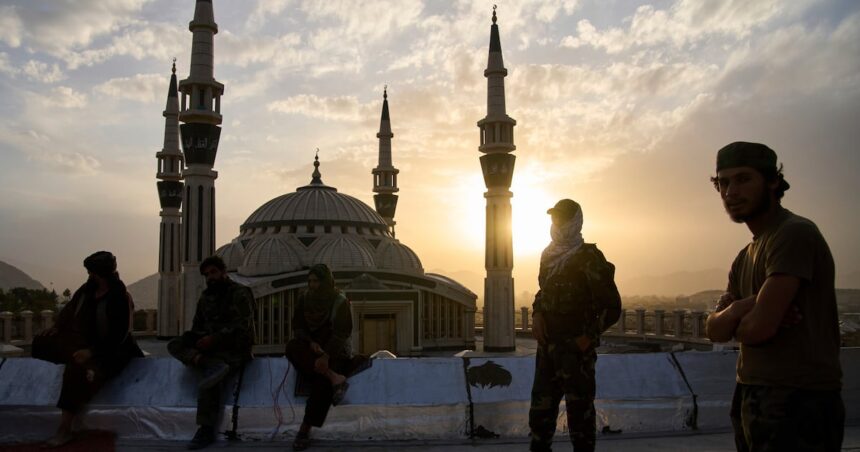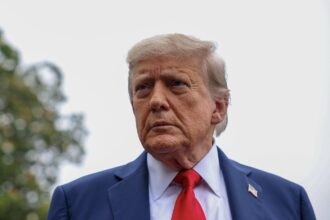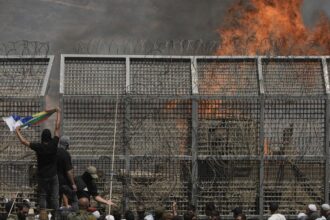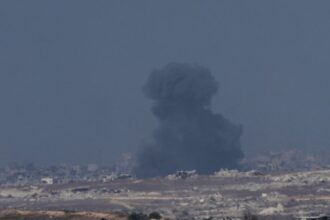In a stunning diplomatic reversal, Russia has become the first major world power to formally recognize the Taliban as Afghanistan’s legitimate government, nearly four years after the militant group’s controversial return to power. The announcement, made during a high-level meeting in Moscow yesterday, marks a significant shift in international relations and raises complex questions about the future of Afghan governance and global security dynamics.
“The Russian Federation acknowledges the Islamic Emirate of Afghanistan as the country’s rightful governing authority,” declared Russian Foreign Minister Sergei Lavrov during a joint press conference with Taliban representative Mullah Abdul Ghani Baradar. “We believe this step will facilitate regional stability and economic cooperation beneficial to both our nations.”
The decision comes after months of intensifying diplomatic engagement between Moscow and Taliban leadership. Russian officials cited the Taliban’s “demonstrated ability to maintain territorial control” and “significant improvements in domestic security” as key factors influencing their recognition. However, international human rights organizations have expressed alarm, pointing to continued restrictions on women’s rights and political freedoms under Taliban rule.
Western nations, led by the United States and European Union, have swiftly condemned Russia’s move. U.S. Secretary of State Anthony Blinken characterized it as “premature and potentially destabilizing” while emphasizing that recognition should be contingent upon “verifiable commitments to human rights, inclusive governance, and counterterrorism efforts.”
The Taliban’s path to international legitimacy has been fraught since their August 2021 takeover following the withdrawal of U.S. and NATO forces. Despite controlling Afghanistan for nearly four years, the group has struggled to gain formal diplomatic recognition, largely due to concerns about their governance approach and human rights record.
Economic considerations appear to be a significant motivator behind Russia’s decision. The two parties signed preliminary agreements on mining development, infrastructure projects, and security cooperation during the Moscow meeting. Afghanistan possesses vast untapped mineral reserves valued at potentially over $1 trillion, including critical rare earth elements essential for modern technology manufacturing.
“This recognition provides Russia with privileged access to Afghanistan’s natural resources while offering the Taliban a pathway toward economic viability,” explains Dr. Elena Korosteleva, professor of international politics at the University of Toronto. “However, it remains to be seen whether this arrangement will deliver tangible benefits to ordinary Afghans facing severe economic hardship.”
The geopolitical implications extend beyond bilateral relations. China, which shares economic interests in Afghanistan and maintains diplomatic contact with the Taliban, is reportedly considering similar recognition. Pakistan, historically aligned with Taliban factions, has welcomed Russia’s announcement while stopping short of following suit.
For Canada, which contributed significantly to the NATO mission in Afghanistan, the development presents diplomatic and humanitarian challenges. Global Affairs Canada reaffirmed that recognition remains conditional on “substantial improvements in human rights protections, particularly for women and girls,” while pledging continued humanitarian assistance through international organizations.
The immediate consequences for Afghans remain uncertain. While recognition could potentially ease international banking restrictions and facilitate increased aid flows, critics worry it may legitimize policies that have severely curtailed women’s education, employment opportunities, and basic freedoms.
As this diplomatic gambit unfolds, a critical question emerges: Will Russia’s recognition of the Taliban government accelerate a broader international acceptance of Afghanistan’s current leadership, or will it further fragment the global community’s approach to one of the world’s most complex humanitarian and security challenges?














